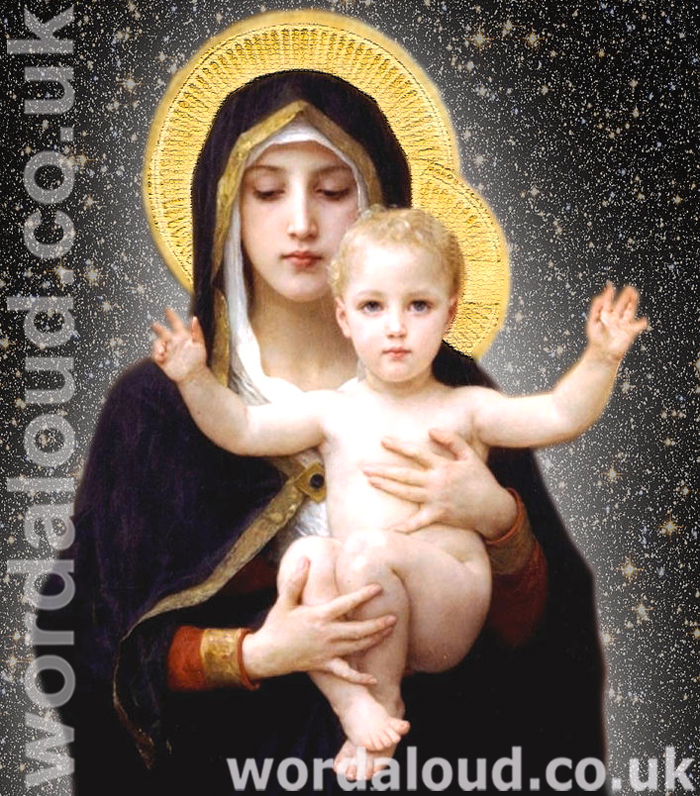Christian Art | Prayer With Jesus | Psalms | Denunciation Of Godlessness | King David As A Boy | Audio KJV | King James Audio Bible | King James Version
Psalm 53 | King James Audio Bible
YouTube: Psalm 53 | KJV | King James Version | Audio Bible | Word Aloud
Psalm 53 reflects on faith and consequences of disbelief. The psalm echoes themes found in Psalm 14, offering a compelling exploration of the nature of human folly and the importance of seeking God.
The psalm begins with a striking declaration: ‘The fool hath said in his heart, There is no God.’ This opening verse sets the tone for contemplation on the perilous path of unbelief. It underscores the notion that denying the existence of God is a mark of spiritual foolishness and moral corruption.
The psalm paints a grim portrait of those who have turned away from God. They are described as corrupt, engaging in abominable deeds, and utterly lacking in goodness. This stark contrast between the wicked and the righteous is a central theme throughout the psalm.
The psalm invites us all to ponder depth of human understanding and pursuit of God. The psalm questions whether any among humanity truly seeks the Divine. The refrain ‘There is none that doeth good’ underscores the psalmist’s lament over the spiritual state of humanity.
The psalmist highlights moral degradation of those who have forsaken God, drawing attention to their cruel treatment of others, described metaphorically as devouring God’s people like bread. This imagery vividly conveys the moral decay that results from a rejection of faith and a disregard for the welfare of others.
Yet, amidst this portrayal of disbelief and consequences thereof, there is recognition of divine judgment. The psalm suggests that God looks down from heaven to witness every action of humanity. While the wicked may revel in their deeds for a time, the psalm hints at a reckoning to come.
The psalm concludes with a yearning for salvation, expressing a heartfelt desire for restoration of God’s people. It anticipates a time when God will deliver Israel from its captivity, bringing about joy and gladness.

Psalm 52 | King James Audio Bible KJV | Love Revealed By Jesus Christ
The fool hath said in his heart, There is no God. Corrupt are they, and have done abominable iniquity: there is none that doeth good.
God looked down from heaven upon the children of men, to see if there were any that did understand, that did seek God.
Every one of them is gone back: they are altogether become filthy; there is none that doeth good, no, not one.
Have the workers of iniquity no knowledge? who eat up my people as they eat bread: they have not called upon God.
There were they in great fear, where no fear was: for God hath scattered the bones of him that encampeth against thee: thou hast put them to shame, because God hath despised them.
Oh that the salvation of Israel were come out of Zion! When God bringeth back the captivity of his people, Jacob shall rejoice, and Israel shall be glad.
Key Themes Of The Psalm For Reflection | Love Revealed By Jesus Christ
- Consequences Of Unbelief: The psalm portrays the consequences of denying the existence of God, emphasizing the moral corruption and folly that can result from such disbelief.
- Contrast Between The Righteous And The Wicked: The psalm highlights the stark contrast between those who seek God and live righteously and those who have turned away from God, engaging in corrupt and wicked actions.
- Absence Of Goodness: The recurring refrain ‘There is none that doeth good’ underscores the psalmist’s lament over the apparent absence of goodness among those who have forsaken God.
- Cruelty Of The Wicked: The psalmist uses vivid imagery to describe the cruelty of the wicked, likening their treatment of others to devouring God’s people like bread. This serves as a condemnation of their moral degradation.
- Divine Judgment: The psalm hints at divine judgment, suggesting that God observes the actions of humanity and will ultimately hold the wicked accountable for their deeds.
- Yearning For Salvation: The psalm concludes with a heartfelt yearning for divine salvation and the restoration of God’s people, expressing hope for a future moment of joy and gladness.








